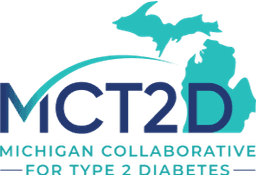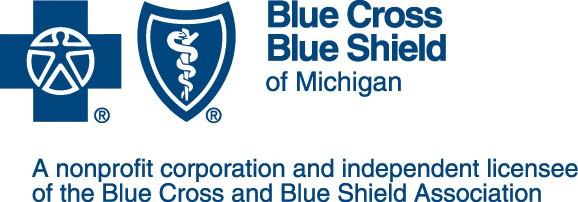NEWS & EVENTS
SPECIALTY CARE
The Michigan Collaborative for Type 2 Diabetes brings together primary care, endocrinology, and nephrology teams to collaborate in statewide quality improvement. Currently, 26 Michigan endocrinology practices participate in the collaborative.
Participating endocrinology practices attend the MCT2D spring regional meetings along with primary care and nephrology practices and have an endocrinology-specific meeting each fall to review the data and discuss endocrinology-focused topics with their peers.
Currently, 83 endocrinologists across the state participate in MCT2D, representing 49% of all endocrinologists in Michigan. MCT2D has developed an attribution model to assign patients to their endocrinologists in the MCT2D patient dashboards and aims to incorporate this in 2025.
Download Value-Based Reimbursement (VBR) Requirements
Participating practices and POs can download a one-page guide to value-based reimbursement (VBR) for the 2024-2025 year.
VBR 1-page PDF for NEW endocrinology sitesVBR 1-page PDF for CONTINUING endocrinology sitesEndocrinology Initiatives
The endocrinologists in MCT2D are focusing on the same three quality improvement initiatives as the primary care practices in the program:
Increasing Use of Continuous Glucose Monitoring (CGM) Devices
CGM devices provide valuable data for improving glucose control and driving diet and exercise behavior change.
Increasing Guideline Directed Mediation Prescribing
New classes of medications improve glucose control, decrease mortality, slow chronic kidney disease progression, and support weight loss.
Promoting Low Carbohydrate Eating Patterns
Lower carbohydrate eating patterns may slow or reverse the progression of type 2 diabetes and be more effective than low-fat diets in patients who are trying to lose weight.
Endocrinology Leadership

Kara Mizokami-Stout, MD, MS
Endocrinology Program Director
Dr. Kara Mizokami-Stout, MD, MSc is an Assistant Professor of Internal Medicine in the Division of Metabolism, Endocrinology and Diabetes at the University of Michigan and the Lieutenant Colonel Charles S. Kettles VA Medical Center in Ann Arbor, MI. Dr. Mizokami-Stout’s clinical interests include type 1 and type 2 diabetes. Her research interests include diabetes health services research with a particular focus on 1) prevention and management of diabetes complications and 2) implementing technologies to improve diabetes self-management and quality-of-life.

Lynn Ang, MBBS
Endocrinology Content Expert
Dr. Lynn Ang is a board-certified endocrinologist and Clinical Associate Professor in the Division of Metabolism, Endocrinology, and Diabetes within the Department of Internal Medicine at the University of Michigan. She serves as a co-director of the Hospital Intensive Insulin Program and chairs the Inpatient Glycemic Management Subcommittee. Her clinical and research interests include optimizing the management of hyperglycemia in both inpatient and outpatient settings, developing protocols for hospital glycemic guidelines, identifying biomarkers to predict the development or progression of diabetic complications, and detecting the earliest stages of these complications to prevent disease progression.

Jennifer Iyengar, MD
Endocrinology Content Expert
Dr. Jennifer Iyengar, MD is a board-certified endocrinologist and Clinical Associate Professor at the University of Michigan in the division of Metabolism, Endocrinology, & Diabetes. She is the Primary Quality Improvement Person (PQuIP) for the Michigan Medicine (MM) endocrinology division and serves as a member of the MM Internal Medicine Quality Council and the MM Outpatient Diabetes Quality Improvement (QI) Committee.




